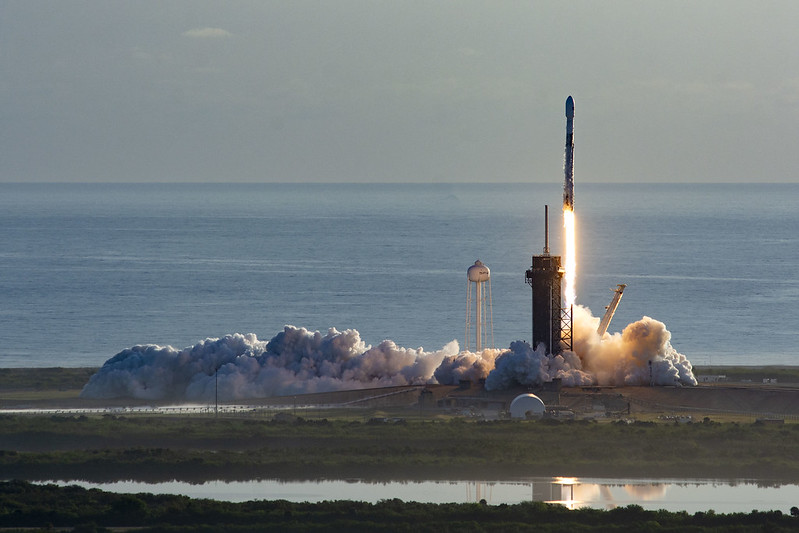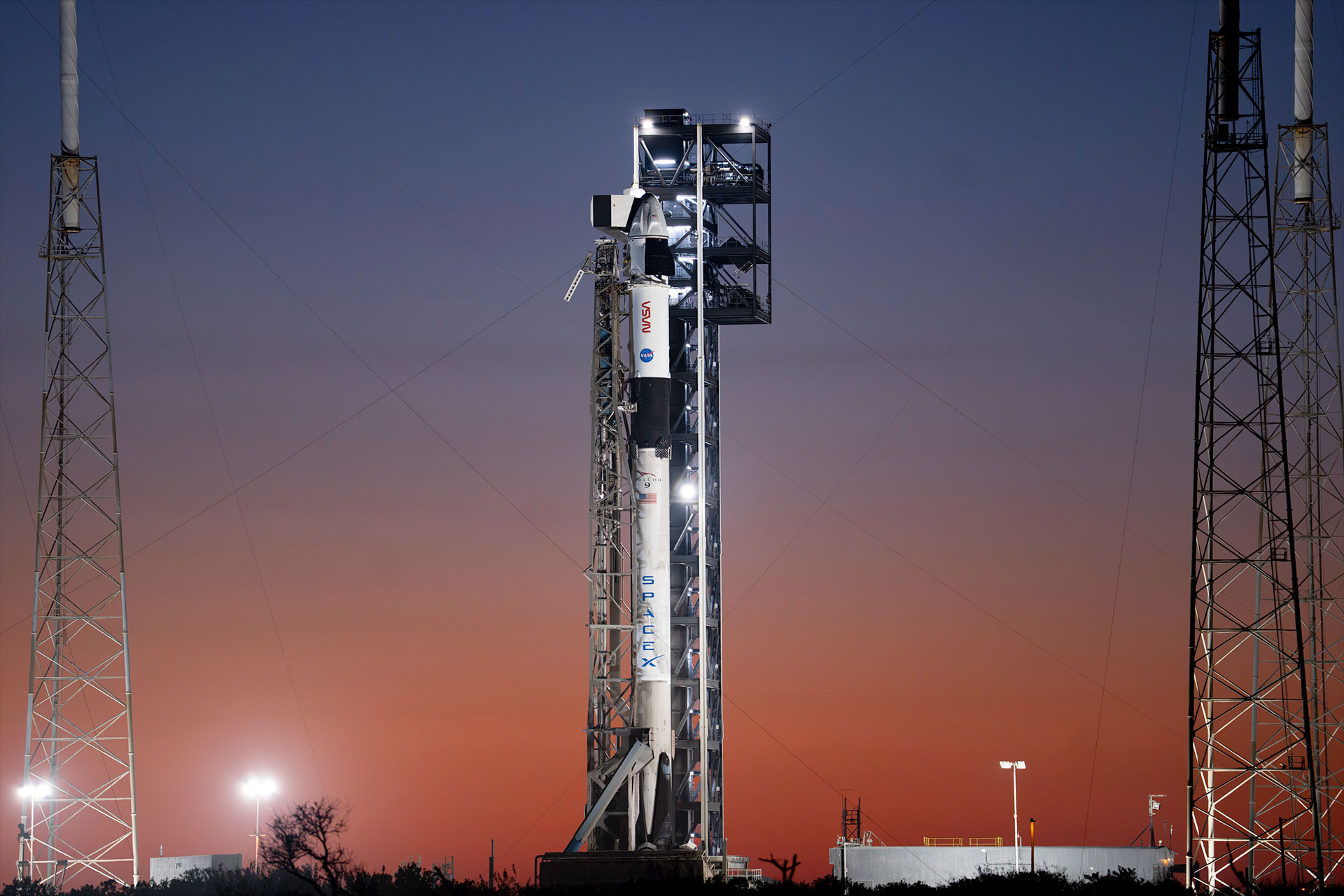Elon Musk says SpaceX will investigate Falcon 9 rocket engine anomaly before launching again

Breaking space news, the latest updates on rocket launches, skywatching events and more!
You are now subscribed
Your newsletter sign-up was successful
Want to add more newsletters?

Delivered daily
Daily Newsletter
Breaking space news, the latest updates on rocket launches, skywatching events and more!

Once a month
Watch This Space
Sign up to our monthly entertainment newsletter to keep up with all our coverage of the latest sci-fi and space movies, tv shows, games and books.

Once a week
Night Sky This Week
Discover this week's must-see night sky events, moon phases, and stunning astrophotos. Sign up for our skywatching newsletter and explore the universe with us!

Twice a month
Strange New Words
Space.com's Sci-Fi Reader's Club. Read a sci-fi short story every month and join a virtual community of fellow science fiction fans!
SpaceX's latest batch of 60 Starlink internet satellites made it to orbit just fine this morning (March 18), but the company's Falcon 9 rocket ride suffered a slight hiccup along the way.
One of the nine Merlin engines that powers the reusable Falcon 9's first stage shut down too early during today's launch, said SpaceX founder and CEO Elon Musk. He vowed to get to the bottom of the issue, even though it didn't prevent the rocket from doing its job.
Today's success "shows value of having 9 engines! Thorough investigation needed before next mission," Musk said via Twitter today.
Related: See the evolution of SpaceX's rockets in pictures
Today's liftoff was the record-breaking fifth for this Falcon 9 first stage. But the booster failed to stick its fifth landing, plunging into the Atlantic Ocean instead of settling onto the deck of a SpaceX drone ship as planned.
An anomalous engine reading caused the Falcon 9 to automatically abort a launch attempt on Monday (March 16), pushing the mission back to today. It's possible, though far from confirmed, that today's engine issue is related to the one that caused the abort, Musk said.
The billionaire entrepreneur didn't address whether the engine shutdown is related to the unsuccessful landing attempt, but he did stress that some issues are to be expected when flying a rocket for an unprecedented fifth time.
Breaking space news, the latest updates on rocket launches, skywatching events and more!
"This vehicle has seen a lot of wear, so today isn't a big surprise. Life leader rockets are used only for internal missions. Won't risk non-SpaceX satellites," Musk said in another tweet.
Last launch aborted due to slightly high power. Possibly, but not obviously, related to today. This vehicle has seen a lot of wear, so today isn’t a big surprise. Life leader rockets are used only for internal missions. Won’t risk non-SpaceX satellites.March 18, 2020
As he noted above, because of the Falcon 9's robust design, the rocket can power through an engine failure. And this has happened before: In October 2012, a Falcon 9 got SpaceX's robotic Dragon cargo capsule safely on its way toward the International Space Station despite an early engine conk-out.
SpaceX now has 360 Starlink spacecraft in low Earth orbit. Starlink is the biggest satellite constellation in history, and it's going to get much bigger. SpaceX already has permission to loft 12,000 Starlink craft, and the company has applied for approval to launch 30,000 more.
- In Photos: SpaceX launches third batch of 60 Starlink satellites to orbit
- SpaceX's Starlink broadband service will begin in 2020: Report
- Why SpaceX's Starlink satellites caught astronomers off guard
Mike Wall is the author of "Out There" (Grand Central Publishing, 2018; illustrated by Karl Tate), a book about the search for alien life. Follow him on Twitter @michaeldwall. Follow us on Twitter @Spacedotcom or Facebook.
OFFER: Save at least 56% with our latest magazine deal!
All About Space magazine takes you on an awe-inspiring journey through our solar system and beyond, from the amazing technology and spacecraft that enables humanity to venture into orbit, to the complexities of space science.

Michael Wall is a Senior Space Writer with Space.com and joined the team in 2010. He primarily covers exoplanets, spaceflight and military space, but has been known to dabble in the space art beat. His book about the search for alien life, "Out There," was published on Nov. 13, 2018. Before becoming a science writer, Michael worked as a herpetologist and wildlife biologist. He has a Ph.D. in evolutionary biology from the University of Sydney, Australia, a bachelor's degree from the University of Arizona, and a graduate certificate in science writing from the University of California, Santa Cruz. To find out what his latest project is, you can follow Michael on Twitter.

